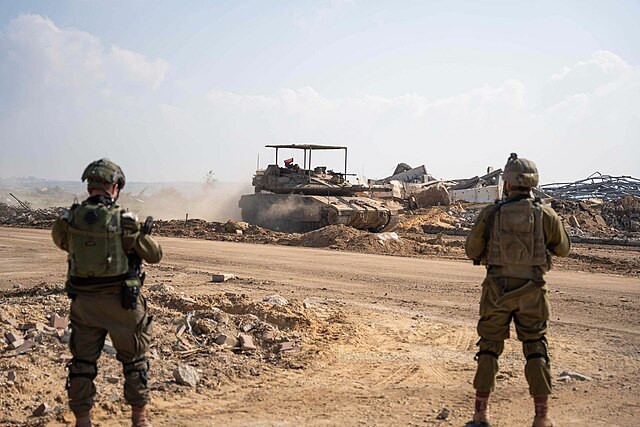Israel has conducted its most extensive operation in the West Bank in over two decades. The Israeli Defense Forces (IDF) reported that five militants, including a prominent local commander, were killed in a series of raids early Thursday morning. The operation, which has been described as the deadliest in the region since the onset of the Gaza war on October 7, continues to draw international concern.
The raids, which began late Tuesday, targeted several locations across the northern West Bank. According to the IDF, the operation aimed to thwart imminent attacks and has resulted in the deaths of 16 individuals, nearly all of whom were identified as militants. The latest operation saw the death of Mohammed Jaber, known as Abu Shujaa, a leader within the Islamic Jihad militant group. Jaber had gained prominence earlier in the year when he was falsely reported dead and later made a dramatic reappearance at a militant funeral.
The IDF stated that Abu Shujaa and four other militants were killed during a raid in Tulkarem after taking refuge in a mosque. The operation in Tulkarem also led to the arrest of another militant and left a member of Israel's Border Police with minor injuries. Israeli authorities assert that Jaber was involved in multiple attacks against Israeli targets, including a fatal shooting in June.
The violence in the West Bank comes amid a broader conflict between Israel and Hamas, which has caused significant casualties and displacement in Gaza. Since the beginning of the war, over 40,000 Palestinians have been reported killed, and the humanitarian situation in Gaza remains dire. The recent escalation in the West Bank, marked by the killing of militants and intensified military actions, has been met with widespread condemnation and concern from the international community.
United Nations Secretary-General António Guterres expressed deep concern over the violence, calling for an immediate cessation of Israeli operations in the West Bank. His comments reflect growing alarm over the potential for further escalation in a region already fraught with tension. The Israeli military's actions have been criticized by international leaders, including European Union foreign policy chief Josep Borrell, who warned that such measures could exacerbate instability.
The Israeli government's rationale for the West Bank raids centers on preventing further attacks and maintaining security. However, Palestinians view these operations as a broadening of the war with Gaza and a continuation of Israel's long-standing military control over the territory. The Palestinian Authority has condemned the raids, but there are no indications that its forces will actively engage in counteractions against Israel.
The raids have particularly targeted refugee camps that have been militant strongholds since the 1948 Arab-Israeli war. These camps, which house many descendants of Palestinians displaced during the creation of Israel, have seen significant militant activity. Hamas has called for a broader uprising in the West Bank and urged Palestinian Authority security forces to join the fight against Israel.
The situation in the West Bank is further complicated by the ongoing conflict in Gaza, where Israeli airstrikes and ground operations continue. The humanitarian crisis in Gaza has led to massive displacement, with around 90% of the population reportedly displaced multiple times. Efforts to negotiate a cease-fire, mediated by the United States, Qatar, and Egypt, have yet to produce a resolution.




